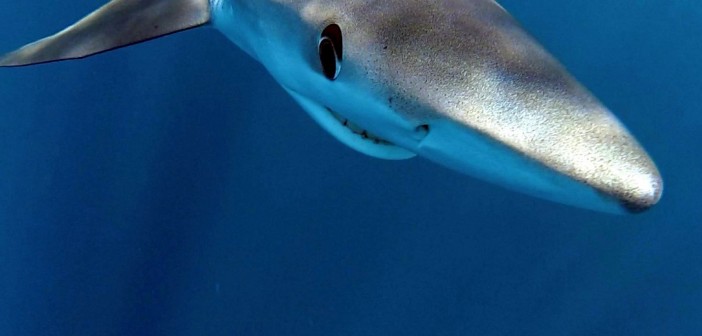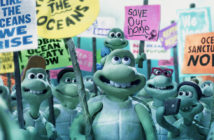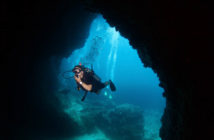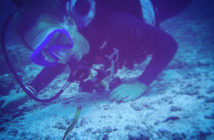In the bad old days of ivory tower academia, only scientists with white coats and Ph.Ds were considered qualified to gather and interpret scientific data—and, God forbid you should suggest otherwise.
Enter the Cornell Lab of Ornithology, where citizen scientists from all over the world (without Ph.Ds or white lab coats) can enter data about their bird sightings and even discover new species.
“Collecting the observations of everyday birders for scientific use is a hallmark of the Lab. Bird watchers of all ages and skill levels help gather the data needed to capture the big picture about the distribution and abundance of birds. Approximately 200,000 people participate in the Lab’s projects. The eBird database allows birders to track any of the earth’s 10,005 bird species to a single scientific database. So far, observations on 8,650 species from 200 countries have been recorded.”
The observations of citizen scientists have helped document the declines of some species, the range expansions of others, and the spread of avian diseases. The observations of birders help the Cornell Lab study birds in cities, suburbs, and forests and help answer questions about how proximity to humans, pollution, climate change, and loss of habitat affect different species.”
Source: http://en.wikipedia.org/wiki/Cornell_Lab_of_Ornithology
And, this is only one example.
So, what is a ‘citizen scientist’ anyway?
The simplest definition is: a citizen scientist is anyone without formal training in science, who collects data using the scientific method, under the mentorship or supervision of a scientist.
Some prefer the term community science and it is coming under more and more acceptance within the formal academic community as citizen scientists around the world prove that, with proper mentoring, accurate scientific data can be collected by non-scientists.
See here for more background on the subject: http://en.wikipedia.org/wiki/Citizen_science
For those with a bent towards SCUBA diving and the oceans, there are several citizen science groups dedicated to training certified SCUBA divers how to collect and enter data about marine life.
Reef.org
Reef.org’s mission is to “to conserve marine ecosystems for their recreational, commercial, and intrinsic value by educating, enlisting and enabling divers and other marine enthusiasts to become active stewards and citizen scientists. REEF links the diving community with scientists, resource managers and conservationists through marine-life data collection and related activities.
REEF envisions divers and marine enthusiasts actively engaging in marine conservation. With knowledge, training and the opportunity to get involved, these marine citizen scientists make significant and ongoing contributions through REEF’s strategic partnerships with government agencies, science and academic institutions, the non-profit sector, and local communities. Divers and snorkelers are in a unique position to observe and document the many valuable and vulnerable living marine resources. They play an important role in bringing information to the surface that adds to the knowledge base of ocean ecosystems and facilitates informed decision-making. Through REEF’s efforts, marine citizen scientists impart an ethic of stewardship to current and future generations.”
Source: http://reef.org/about
Reef Check
Reef Check is a slightly more rigorous program whose training is not free, but enables volunteer divers to collect data using many of the same methods used by professional marine biologists.
“Founded in 1996 by marine ecologist Dr. Gregor Hodgson, the Reef Check Foundation is an international non-profit organization dedicated to conservation of two ecosystems: tropical coral reefs and California rocky reefs. With headquarters in Los Angeles and volunteer teams in more than 90 countries and territories, Reef Check works to create partnerships among community volunteers, government agencies, businesses, universities and other non-profits. Reef Check goals are to: educate the public about the value of reef ecosystems and the current crisis affecting marine life; to create a global network of volunteer teams trained in Reef Check’s scientific methods who regularly monitor and report on reef health; to facilitate collaboration that produces ecologically sound and economically sustainable solutions; and to stimulate local community action to protect remaining pristine reefs and rehabilitate damaged reefs worldwide.”
Ocean Sanctuaries and National Geographic’s Citizen Science Tool: Fieldscope
San Diego’s most recent ocean-related non-profit, Ocean Sanctuaries, recently teamed up with National Geographic to test its newest citizen science tool, called ‘Fieldscope,’ specifically adapted for documenting shark encounters along the California coastline.
Local divers can log sightings and submit photos of Leopard sharks, Horn sharks, Angel sharks, Tope sharks as well as pelagic species such as Blue, Mako, Great White and Thresher
Go to: http://oceansanctuaries.org/wordpress/citizen-science-projects/fieldscope/
For more information see here: http://education.nationalgeographic.com/education/programs/fieldscope/?ar_a=1
Also, the Fieldscope app for smartphones is available for both Androids on Google Play as well as for iPhones here: https://itunes.apple.com/us/app/fieldscope-data-collector/id820381057?mt=8&ar_a=1
Ocean Sanctuaries and Sevengill Shark Sightings
Sevengill Shark Sightings was originally set up as a citizen science project to establish a baseline population study for the Sevengill Shark (Notorynchus cepedianus) in the San Diego and Southern California area and is now an Ocean Sanctuaries project. Local divers take high quality video or photographs and submit them for analysis by the pattern recognition algorithms in ‘Wildbook,’ a software program originally designed by Jason Holmberg to be used in identifying Whale sharks.
See links below for more information on this project:
Methodology: http://sevengillsharksightings.org/our-methodology-introduction/
Wildbook: http://www.wildme.org/wildbook/doku.php?id=start
And, for those with doubts about the quality of data collected in citizen science, a recent scientific paper in PLOS ONE by Gabriel Vianna of the University of Western Australia in showed that data collected by divers was as reliable as the telemetry used by marine biologists.









